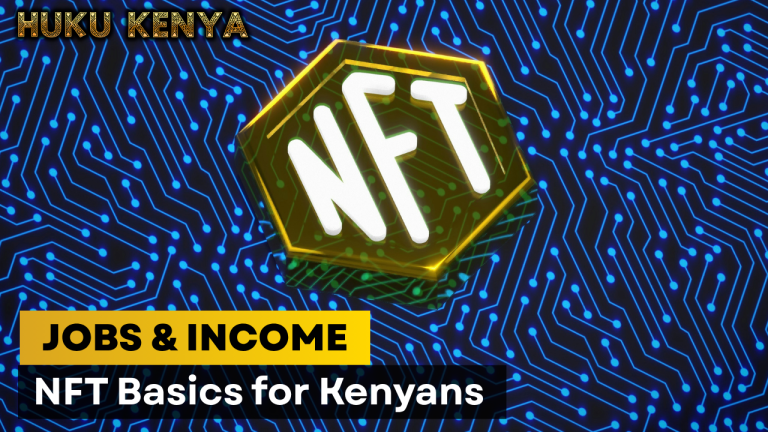
From Zero to Income
The written word holds immense power, and in today’s digital landscape, that power translates directly into earning potential. Freelance writing offers Kenyans a flexible, rewarding career path where your words can become your income. Whether you dream of writing compelling blog posts, informative articles, engaging website copy, or even academic papers, this guide will show you how to turn your passion for writing into a legitimate income stream, even if you’re starting from scratch.
Why Freelance Writing?
- Flexibility: Work from anywhere with an internet connection – your dorm room, a cyber cafe, or your home. Set your own hours.
- Scalability: Start with small gigs and gradually take on larger, higher-paying projects as your skills and reputation grow.
- Diverse Opportunities: The demand for written content spans almost every industry imaginable.
- Skill Development: You’ll constantly learn new things, improve your research abilities, and refine your writing style.
- Independence: Be your own boss and build a career on your terms.
Step 1: Master the Fundamentals of Writing
Before you even think about clients, focus on your craft.
- Grammar, Spelling, Punctuation: These are non-negotiable. Clients expect clean, error-free copy. Utilize tools like Grammarly (free version is sufficient) to catch mistakes.
- Clarity and Conciseness: Good writing is easy to understand. Avoid jargon and unnecessary words.
- Research Skills: Most freelance writing involves researching topics you might not be an expert in. Learn to find reliable sources quickly.
- Formatting for the Web: Understand how to use headings, bullet points, short paragraphs, and bold text to make content scannable and engaging for online readers.
- SEO Basics (Optional but Recommended): Knowing how to naturally incorporate keywords helps your content rank higher in search engines, making you more valuable to clients. Google’s free “Digital Garage” course is an excellent resource.
Step 2: Choose Your Niche (or Start Broad and Refine)
While you can be a generalist, specializing in a niche often helps you stand out and attract higher-paying clients. Consider what you enjoy writing about or have some existing knowledge in.
- Content Writing: Blog posts, articles, website content (most common for beginners).
- Copywriting: Sales pages, ad copy, email sequences (focused on persuasion).
- Academic Writing: Essays, research papers, dissertations (requires strict adherence to academic standards). Platforms like NerdyTurtlez (see below) specialize in this.
- Technical Writing: Manuals, guides, instructions (requires precision and clarity).
- SEO Writing: Content optimized to rank on Google.
- Ghostwriting: Writing content under someone else’s name.
Step 3: Build Your Portfolio (Even if You Have No Paid Experience)
Your portfolio is your resume. Clients want to see samples of your work.
- Create Sample Articles: Write 3-5 high-quality articles on topics you’re interested in or in a niche you want to pursue. These don’t need to be published anywhere yet.
- Start a Personal Blog: This is an excellent way to showcase your writing style, practice regularly, and demonstrate your commitment. You can write about anything you’re passionate about.
- Guest Posting: Offer to write free articles for small blogs or websites in exchange for a byline (your name attached to the article). This gets your work published and provides a real-world sample.
- Contribute to Online Publications: Some online magazines or news sites accept unpaid contributions initially, which can be great for building credits.
Step 4: Set Up Your Online Presence
You need to be discoverable.
- Professional Email Address: Use something clear and professional (e.g., yourname.writing@gmail.com).
- LinkedIn Profile: Optimize your LinkedIn profile to highlight your writing skills and experience. Connect with content managers, small business owners, and other freelancers.
- Freelancing Platform Profiles: Create strong profiles on platforms where you’ll look for work.
- Simple Writer Website/Portfolio (Optional but Recommended): Once you have a few samples, consider a free website builder (like Google Sites, WordPress.com, or Canva’s website feature) to host your portfolio.
Step 5: Find Your First Clients (Platforms for Kenyans)
This is where the rubber meets the road. Be persistent!
A. Global Freelancing Marketplaces (Most Common Entry Point):
- Upwork: One of the largest global platforms. Create a compelling profile, take relevant skills tests, and start bidding on writing jobs. Many Kenyan writers find consistent work here.
- Fiverr: Great for “gigs” – you offer specific writing services (e.g., “I will write a 500-word blog post for $X”) and clients purchase them.
- Freelancer.com: Similar to Upwork, with a wide range of writing projects.
- Guru.com & PeoplePerHour: Other international platforms that connect freelancers with clients.
B. Kenyan-Specific Platforms & Communities:
- WriterPro: A platform designed specifically for Kenyan writers, focusing on academic and article writing. It offers competitive pay and convenient local payment options like M-Pesa. This is a strong option to explore!
- Falcon Writers: Another platform often mentioned by Kenyan writers, providing a source of writing jobs.
- Academic Writing Accounts: Many Kenyan writers start with academic writing. While the pay can be good, ensure you understand the ethics and client expectations fully. Look for reputable academic writing sites that hire from Kenya.
- Facebook & Telegram Groups: Search for “Online Writing Jobs Kenya,” “Freelance Writers Kenya,” or “Content Writers Kenya.” Many local clients and agencies post jobs here. Be extremely cautious of scams; always vet potential clients thoroughly before starting work.
- Writers Guild Kenya: A community for Kenyan writers. While not a job board, connecting with fellow writers can lead to networking opportunities and job leads.
- MyJobMag & BrighterMonday: Occasionally list remote content writer or copywriter positions from Kenyan companies.
C. Direct Pitching (Advanced but High-Paying):
- Cold Pitching: Once you have some experience, identify websites or businesses whose content you admire (or could improve). Find the contact person (content manager, marketing manager) and send a personalized email proposing your writing services, including relevant portfolio samples.
- LinkedIn: Use LinkedIn’s search functions to find content managers, marketing directors, or small business owners who might need writing services. Send personalized connection requests and follow up with a concise pitch.
Step 6: Pricing Your Services & Getting Paid
- Start Competitively: As a beginner, you might need to offer slightly lower rates to get your first few clients and build reviews.
- Common Pricing Models:
- Per word: (e.g., Ksh 2-5 per word, potentially more for specialized content).
- Per article/project: A fixed price for the entire piece of content.
- Per hour: (e.g., Ksh 200-1000+ per hour, depending on experience and task).
- Research Industry Rates: Look at what other freelancers with similar experience are charging. Payscale.com provides some insights into freelance writer hourly pay in Kenya.
- Payment Methods for Kenyans:
- PayPal: Most common for international clients. Ensure your PayPal is verified.
- Payoneer: Another popular international payment service, offering a virtual debit card and direct bank transfers.
- M-Pesa: Preferred for local clients in Kenya. Some local platforms like WriterPro directly integrate with M-Pesa.
- Bank Transfer: For larger local projects.
Step 7: Continuous Learning and Professionalism
- Never Stop Learning: The digital world evolves. Stay updated on SEO, content marketing trends, and writing best practices.
- Communication is Key: Maintain clear, prompt communication with clients. Ask questions if something is unclear.
- Meet Deadlines: Always deliver on time. If you foresee a delay, communicate it immediately.
- Seek Feedback: Ask clients for constructive criticism to improve your work.
- Manage Your Finances: Keep track of your earnings and expenses.
- Be Patient and Persistent: Building a freelance writing career takes time and effort. Don’t get discouraged by rejections. Every “no” brings you closer to a “yes.”
Starting your freelance writing journey in Kenya is an exciting venture. With dedication, continuous skill development, and strategic client outreach, your words can become a powerful vehicle for your financial independence.

























